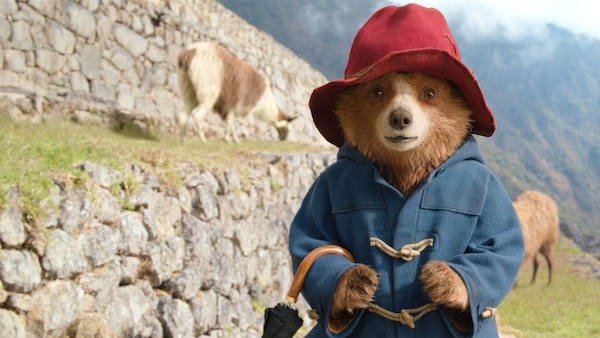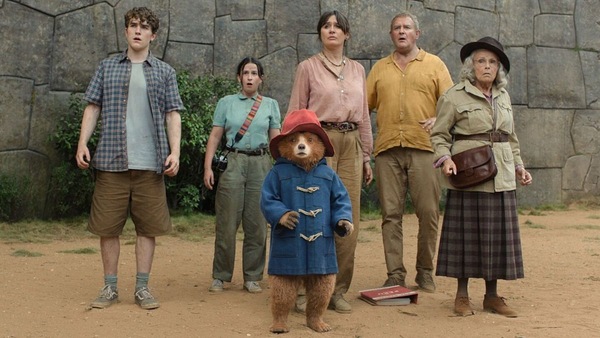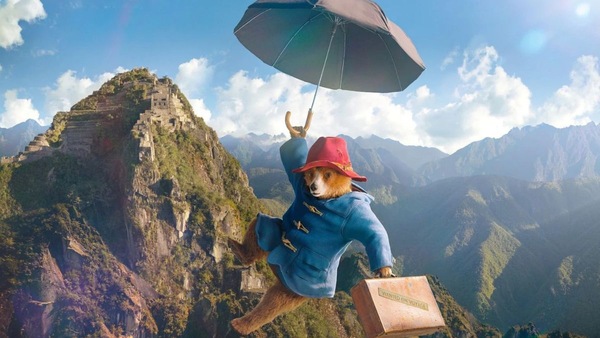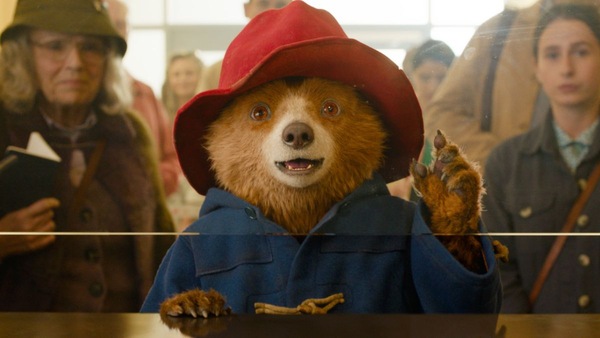Paddington In Peru: Too Much Padding, Not A Ton Of Fun
8 years after the last film, Paddington Brown now feels like mid-tier fare. In this world of hate-watching and hate politics and general hatred, the newest adventure is simply not adventurous enough.

Still from Paddington in Peru.
Last Updated: 08.38 PM, Apr 16, 2025
THE BEST MOMENT of Paddington in Peru — the third instalment in the live-action animated film franchise about a polite bear who finds a home with a British family in London — features the villain from Paddington 2. The inimitable Hugh Grant reappears as ‘master of disguise’ Phoenix Buchanan. But one must wait patiently for 106 minutes to reach this mid-credits sequence. That’s not to say Paddington in Peru is a vintage bore. It just tries too hard not to be one.
It’s serviceable and sweet and aggressively family-friendly, but its biggest hybrid-medium competition is its own legacy. The first two parts raised the bar so high for a landscape morphing into a Disney wasteland of remakes that the only way to process Paddington in Peru (code name: Pip, incidentally the protagonist of Great Expectations, which this film dashes) is to admit that it lacks the novelty of Paddington (2014) and the ingenuity of Paddington 2 (2017). There’s no easy way to say it: 8 years after the last film, the bear now feels like mid-tier fare. In this world of hate-watching and hate politics and general hatred, the newest adventure of Paddington Brown — an all-ages-accessible and orange-marmalade-loving allegory against modern-day xenophobia and fascist immigrant policies — is simply not adventurous enough.

Paddington has settled in as the most different-looking member of the very white Brown Family. The human community has made the hairy bear one of their own — the film even opens with him receiving his British passport. He is a legal citizen. They soon receive a worrying letter from the Reverend Mother (Olivia Colman) running the Home of Retired Bears in Peru, where Paddington’s old Aunt Lucy resides. Naturally, this results in the franchise leaving London on what eventually looks more like an overplanned office picnic than an exotic family vacation. The Brown family reach Peru to discover that Aunt Lucy has gone missing in the jungle. Paddington’s search for his aunt is inevitably hijacked by an Amazonian quest for ancient gold and a lost city with two local stakeholders — a riverboat captain with “gold sickness” named Hunter (Antonio Banderas), and the suspiciously cheery Reverend Mother — joining in.
The film yearns to stay funny and interesting. There’s a chaotic shipwreck sequence, plenty of cartoonish accidents, a magical bracelet, a mythical land, a rickety plane, a hike through the forest and a trek to a stony Incan fort (that resembles Machu Picchu). Banderas has fun playing ghostly ancestors and multiple figments of Hunter’s imagination, and Colman is perfectly creepy, but some of these performances seem to infantilise the audience instead of speaking to them. None of the set pieces are memorable enough to become a children’s classic, and none of the commentary is memorable enough to become a grown-up’s children’s classic.

At the core of this movie is a birth-versus-belonging message that, for Indians, can be interpreted as a “permanent address v/s current address” conflict on a passport. I like the timing of the idea — does Paddington return to Peru or does he return to London? Yet, the ornamental padding around it is the kind of stuff that would be direly mediocre if not for the presence of a VFX bear. At some level, a film like this is limited by its hybrid form: it talks live-action and walks animated. Ben Winshaw’s voice, too, overdoes the English manners to a point where you wonder if Paddington just likes to annoy people. I’m fond of Winshaw, but there’s a thin line between principled bear and serial-killing mammal.
I get the issue, though. If you make him too approachable or adorable, you’re at the risk of revising natural order: kids all over the world might start seeking out wild bears and expect them to talk and wear hats. That wouldn’t end well. It’d become carnivore propaganda, a distant sibling of right-wing and history-revising propaganda. But then that’s like expecting people to stop eating fish after Finding Nemo or empathise with talkative sharks after Shark Tale. I did. Just saying. Never mind that I wasn’t a seafood lover or a shark hater to begin with. I’m missing a few body parts, but that’s not the point.

Anyway, we digress. With a threequel like Paddington in Peru, it’s always important to ask the question “is it good enough?” rather than “is it good?”. The answer may not be generous, but it’s in service of the greater good of a commercial cinemascape that’s happy to keep deriving. The kids love their screens today, but if the screen’s going to keep showing them old friends and familiar foes, it better be original entertainment. The bear better adapt. If not, you’re stuck with a fuzzy immigrant whose Britishness must transcend Brexits and tariff wars.
